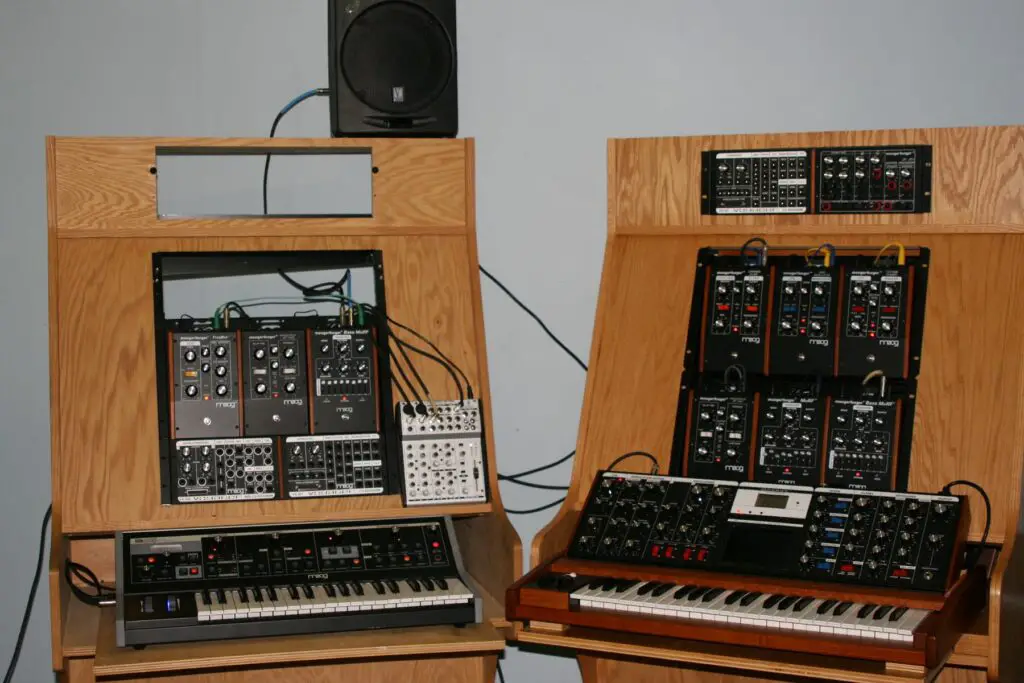Have you ever listened to a song and wondered how it was produced with such precision and clarity? Do you aspire to create music that sounds outstanding and stands out from the crowd? Whether you’re a beginner or an experienced music producer, there are always new tips and techniques to learn that can take your productions from average to outstanding. In this blog post, we will dive into some of the most effective tips on music production that can help you achieve professional-sounding results. Get ready to take your music production skills to the next level!
Table of Contents

Mastering the Basics: Essential Tips for Music Production
Tips on music production are essential for any aspiring producer or musician looking to take their craft to the next level. If you’re just starting out, it’s important to master the basics before moving onto more advanced techniques. One key factor is having good raw audio files, which can be achieved by using quality recording equipment and instruments.
Additionally, mixing and mastering your tracks is crucial for achieving a professional sound. This involves balancing levels of each instrument in the overall mix, applying EQ and compression where necessary, and using reverb or delay effects to create depth and space.
It’s also important to have a solid understanding of music theory, as this will inform composition decisions such as chord progressions and melodies. Finally, don’t underestimate the importance of collaboration – working with other musicians or producers can help bring fresh perspectives and new ideas to your music production process.
From Mediocre to Masterpiece: Elevating Your Music Production Skills
Whether you’re an aspiring musician or a seasoned producer, there’s always room for improvement when it comes to music production. Elevating your music production skills requires dedication and a willingness to learn. One important aspect is to constantly listen and analyze different songs across various genres, understanding how they were produced and mixed.
Another essential tip is to invest in quality equipment such as studio monitors, headphones, and audio interfaces. Upgrading your gear can give you better accuracy in sound reproduction and enable you to make more informed mixing decisions.
Having strong technical skills is also crucial in producing outstanding music. Take the time to understand the fundamentals of signal flow, EQing, compression, reverb effects, etc., as they will help turn mediocre tracks into masterpieces that stand out from the rest.
Finally,experimentation plays a significant role in enhancing your production skills. Don’t be afraid of trying new things or taking risks with unconventional sounds; it’s often through these moments that breakthroughs are made leading to innovative productions. By following these tips consistently while continuously pushing yourself outside comfort zone creatively guarantees path towards better music production results over time!
The Art of Music Production: Tips and Tricks for Outstanding Results
Experimentation and creativity are two key components of successful music production. Don’t be afraid to try new things and think outside the box when it comes to creating unique sounds and arrangements. Utilize different software and equipment to find what works best for you, and don’t be afraid to mix genres or styles to create something truly original.
Another important aspect of music production is attention to detail. Take the time to fine-tune every element of your track, from the EQ levels to the reverb settings. Every small adjustment can make a big difference in the overall sound quality.
Collaboration can also be a valuable tool in music production. Working with other musicians or producers can bring fresh perspectives and ideas to the table, leading to even more innovative results.
Lastly, don’t forget about the importance of listening. Take breaks during the production process to step back and listen objectively to your work. This can help identify areas that need improvement or inspire new ideas for further experimentation.
Expert Advice: Top Tips for Improving Your Music Production Techniques
Master the Art of Mixing and Mastering Your Tracks
To produce outstanding music, it’s crucial to master the art of mixing and mastering your tracks. One important tip is to ensure that each track is properly EQ’d to prevent clashing frequencies. Another key aspect is to use compression effectively, which can help control dynamics and bring out the best in each instrument or vocal. Additionally, it’s important to pay attention to the overall levels of your mix and ensure that nothing is too loud or too quiet. Lastly, make sure to use high-quality plugins and tools for mastering your tracks, as this can make a significant difference in the final sound quality.
Utilize Dynamic Range and EQ Techniques for Enhanced Sound Quality
When it comes to music production, utilizing dynamic range and EQ techniques can greatly enhance the sound quality of your tracks. Dynamic range refers to the difference between the loudest and softest parts of a song, and using compression and limiting can help control this range for a more balanced sound. EQ, or equalization, allows you to adjust the levels of different frequencies in your mix, giving each instrument or element its own space in the sonic spectrum. Experimenting with these techniques can help you achieve a more professional and polished sound in your music production.
Experiment with Different Recording Techniques to Improve Workflow and Efficiency
One way to improve your music production techniques is by experimenting with different recording methods. This can help you find a workflow that not only improves efficiency but also enhances the quality of your final product. Try out different microphone placements, record in different rooms or environments, and even experiment with unconventional recording setups such as using ambient noise or non-traditional instruments. The possibilities are endless! By exploring various recording techniques, you will gain a better understanding of how to capture sound creatively and efficiently. Incorporating these techniques into your music production process can make all the difference in creating an outstanding track that stands out from the rest.
Develop a Unique Production Style by Incorporating Unconventional Sounds
To stand out in the music industry, developing a unique production style is key. One effective way of doing this is to incorporate unconventional sounds into your tracks. Don’t be afraid to experiment with different samples and instruments – incorporating unexpected elements can add depth and interest to your music. For example, try blending organic sounds like field recordings or live instrument recordings with electronic synths or drum machines for an interesting contrast. You can also explore unconventional techniques such as using found objects or creating percussion by sampling everyday items. Remember that the possibilities are endless when it comes to sound creation – embrace experimentation and let your creativity guide you towards new and exciting sonic frontiers!
Taking Your Music Production to the Next Level: Insider Tips and Strategies
Innovative Techniques and Collaboration
To truly take your music production to the next level, it’s important to explore innovative techniques and collaborate with other artists. One way to do this is by experimenting with different software and hardware tools to create unique sounds and textures. Don’t be afraid to think outside the box and try new things.
Collaboration is also key in elevating your music production skills. Working with other musicians, producers, and engineers can bring fresh perspectives and ideas to the table. It’s important to communicate effectively and be open to feedback in order to create a cohesive final product.
Another tip for taking your music production to the next level is to focus on creating a strong brand image. This includes developing a unique sound, visual aesthetic, and social media presence that resonates with your audience. By building a strong brand, you can attract more fans and opportunities for success in the industry.
Remember, taking your music production from average to outstanding takes time, dedication, and a willingness to constantly learn and improve. Keep pushing yourself creatively and don’t be afraid to take risks in order to stand out in a crowded industry.
In conclusion, music production is a skill that can be learned and perfected with practice. By mastering the basics, elevating your skills, utilizing tips and tricks, seeking expert advice, and implementing insider strategies, you can take your music production to outstanding levels. Whether you are an aspiring musician or a seasoned producer looking to improve your craft, these tips will help you create masterpieces in the studio.
We hope this article has been helpful for you on your journey towards becoming an excellent music producer. Make sure to check out our other content for more valuable insights into various niches. Keep practicing and experimenting with different techniques until you find what works best for you – before long, your music productions will be truly exceptional!
Q & A
Who can benefit from tips on music production?
Anyone interested in producing music, from beginners to professionals.
What are some basic tips on music production?
Start with good equipment, practice regularly, and learn from experts.
How can I improve my music production skills?
Take courses, attend workshops, and collaborate with other producers.
What are some common mistakes to avoid in music production?
Overusing effects, neglecting mixing, and not giving enough attention to mastering.
How do I stay motivated in music production?
Set goals, celebrate accomplishments, and find inspiration in other artists’ work.
But isn’t music production only for the musically talented?
No, with practice and dedication, anyone can learn the art of music production.


